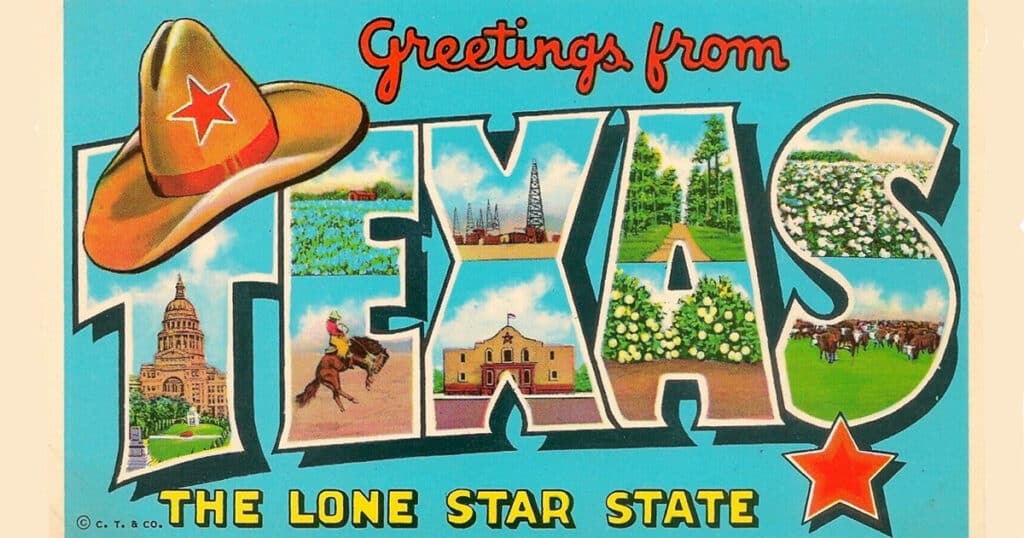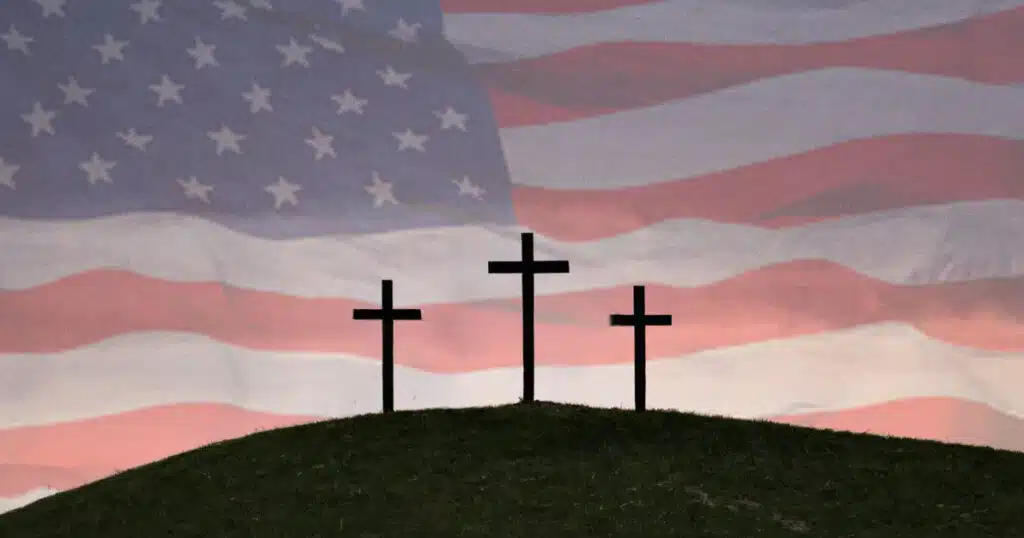
The Hunger That Could Save America
“This kind is not cast out but by prayer and fasting.”
This Friday of Passiontide, as Christians stand on the threshold of Holy Week, as we live amidst an acceleration of the externalizing of evil as we’ve never seen in our lifetimes, perhaps ever, as our country and our world dance through political narrative after political narrative—all with one purpose from the enemy and another from God—it is the opportune moment to reflect on the practice of fasting, not merely as a ritualistic observance, but as a transformative journey that aligns us more closely with the heart of God in the midst of the revelation.
Serious, biblical fasting can lift both an individual and a nation. It isn’t mere dieting, of course. It isn’t punishment in the strictest sense. At its sincerest spirit, it is mostly an exercise in resistance, muscle memory of the soul. It is saying no to the flesh so we can say yes to something higher, something heavenly. In a world of gluttony on cheeseburgers and Chips Ahoy, the sacrificial act of fasting becomes one of spiritual rebellion against that which would kill us—and a declaration of hope that we are indeed able to persevere in Christ.
Scripture is filled with fasting in moments of crisis, repentance, and holy preparation, found in both the Old and New Testaments. Moses fasted before receiving the commandments. Esther fasted before confronting the king. Jesus fasted in the wilderness before facing the devil. And they did it because the flesh made mortal by Adam and Eve must be mortified. The simple physics of emptying the stomach emboldens the heart and sharpens the intellect in the direction of our Creator. It is doing what we can to touch the divine, as delicately as that must be in this vale of tears.
Dare I say it, inspired by both Scripture study and deep personal experience, I think we need to see it as one of those “secondary” commandments. These are Jesus Christ himself’s own words. We must fast, and we must fast from food.
Is there anything “secondary,” actually, in the commands of Christ?
There is what should be an infamous passage in the Gospel of St Matthew, Chapter 17:14-20, in which Christ nearly simultaneously scolds his disciples for their lack of faith but then extends a word of understanding for their shortfall:
And when he was come to the multitude, there came to him a man falling down on his knees before him, saying: Lord, have pity on my son, for he is a lunatic, and suffereth much: for he falleth often into the fire, and often into the water. And I brought him to thy disciples, and they could not cure him.
“Then Jesus answered and said: O unbelieving and perverse generation, how long shall I be with you? How long shall I suffer you? bring him hither to me. And Jesus rebuked him, and the devil went out of him, and the child was cured from that hour. Then came the disciples to Jesus secretly, and said: Why could not we cast him out? Jesus said to them: Because of your unbelief. For, amen I say to you, if you have faith as a grain of mustard seed, you shall say to this mountain, Remove from hence hither, and it shall remove; and nothing shall be impossible to you. But this kind is not cast out but by prayer and fasting.
Sometimes it takes more than a word.
A Priest Speaks on Fasting
Fr Henry James Coleridge emphasizes that fasting is more than abstaining from food, which speaks to the “physics” of the act I mentioned above; it’s a deliberate act of mortification that addresses the very appetites leading to humanity’s fall: “Fasting…,” he says, “is the direct correction and punishment of that appetite, the undue indulgence of which brought about the Fall. It stands in the spiritual and ascetic system for the whole range of the many kinds of external penance and self-chastisement.”
Because we are tangible, incarnate, fleshly beings, the idea is that we cannot simply fix physical ails with non-physical promises. Tactile sin requires tactile self-correction. This perspective invites us to see fasting as a means to restore the order disrupted by sin, purifying our souls and realigning our desires with God’s will. It is an opportunity afforded us by Christ’s saving act on the Cross. He opened the gate of heaven shut by our first parents; he also gave us legs to walk through it.
Read Matthew Ch 7 for some stern words from Jesus on the notion of just saying the words, “Lord, Lord.”
Beyond mortification in order to straighten the crooked lines, fasting serves as a conduit for spiritual enlightenment. Says Fr Coleridge, summarized in “How Fasting Helps the Soul–And the Modern World”:
- Fasting enlightens the soul: It sharpens the mind, strengthens the will, and aids contemplation.
- Fasting is a path to union with God: It eradicates self-love, conquers spiritual enemies, and leads to glory.
- Rejecting fasting is dangerous: Softness and modern errors undermine the discipline that purifies and elevates the soul.
Fasting is not just mortification but a means of divine illumination and a path to spiritual victory.
Look at the bold above. Why can we apply these notions to sports but ignore them in the spiritual life?
I can testify to the pure and unadulterated truth of each of those statements; there is no way I would have been given the grace and the miracle to see what my narcissistic character was doing to myself and the world without the power of fasting from food and literally having to depend on God and God only for sustenance. Through fasting, we open the light on our intellect and lay ourselves raw to divine wisdom, allowing God to illuminate our path and deepen our communion with him and neighbor both.
America and a Contemporary Call to Repentance
Our nation is in trouble. Our world is in trouble. Just as Ninive was in trouble in the Book of Jonas. We pray for France and Ukraine and Israel because the insidious state-run media tells us to, but we ignore the massacre of Christians in places like Palestine. We had an invasion at the southern border for years, an avalanche of individuals intent on wholly reshaping this country from the inside out, pushed by the same Communists that have incited similar takeovers since the turn of the 20th century, and we continue to scoff at and scroll past “political posts.” Then we wonder why things are turning to rubble and bemoan “what this world is coming to.”
My friends, we are that world.
In times of spiritual warfare, fasting becomes an indispensable weapon. It equips us to confront spiritual challenges, fortifying our faith and dependence on God. As we carry our crosses through Lent, may we embrace fasting not as a burdensome duty, but as a sacred opportunity to draw nearer to God, purify our hearts, and prepare for the continuing Good Friday happening now in this nation, one that we all know will not pause for celebration next Sunday.
If we repent as a nation, there may still be time:
And Jonas began to enter into the city one day’s journey: and he cried, and said: Yet forty days, and Ninive shall be destroyed. And the men of Ninive believed in God: and they proclaimed a fast, and put on sackcloth from the greatest to the least.
And the word came to the king of Ninive; and he rose up out of his throne, and cast away his robe from him, and was clothed with sackcloth, and sat in ashes. And he caused it to be proclaimed and published in Ninive from the mouth of the king and of his princes, saying: Let neither men nor beasts, oxen nor sheep, taste any thing: let them not feed, nor drink water. And let men and beasts be covered with sackcloth, and cry to the Lord with all their strength, and let them turn every one from his evil way, and from the iniquity that is in their hands. Who can tell if God will turn, and forgive: and will turn away from his fierce anger, and we shall not perish? And God saw their works, that they were turned from their evil way: and God had mercy with regard to the evil which he had said that he would do to them, and he did it not (Jonas 3).
May you have a blessed, holy, and penitent Holy Week–with prayer and fasting. There is a reason there is such a concentrated effort to remove fasting from food from our everyday conversations. They’re trying to scrub every tried-and-true weapon from our collective conscience.
Don’t let them do it. The hour is late, certainly–but the gates of God’s mercy are still open.



